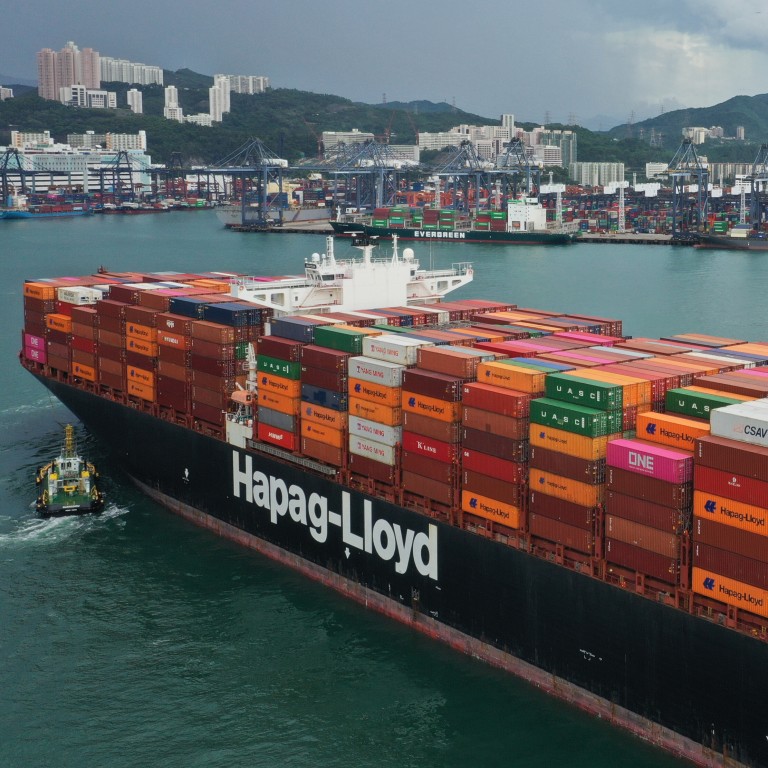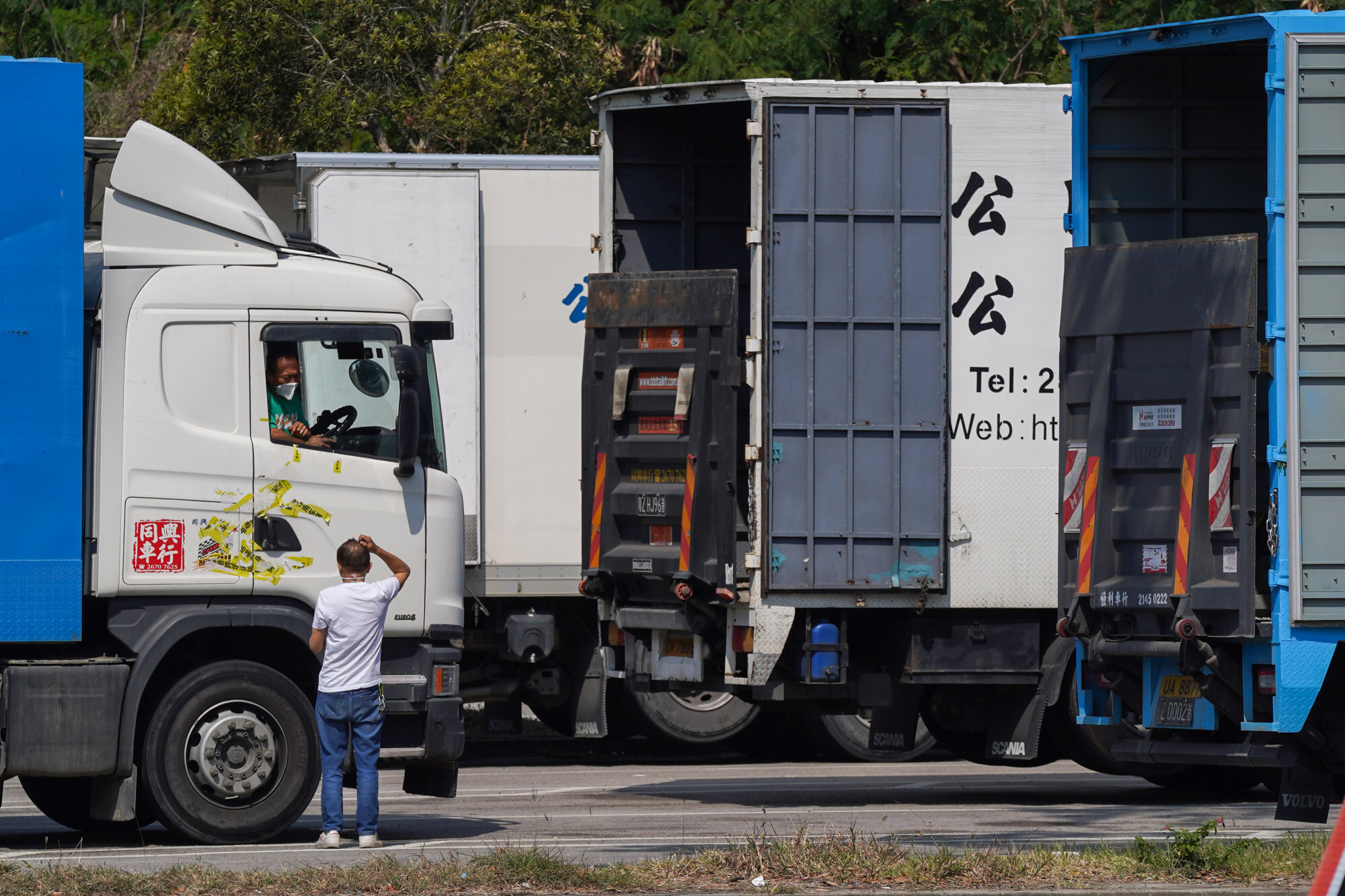
Hong Kong exports plunge 8.9 per cent as Covid-19 pandemic disrupts flow of goods over mainland China border
- Figure for March marks first decline since October 2020, as trade hit by scores of city’s drivers becoming infected
- Imports also fell by 6 per cent from a year ago after an increase of 6.2 per cent in February
Hong Kong exports fell in March for the first time since October 2020, plunging by 8.9 per cent from a year earlier as the Covid-19 pandemic snarled logistics and weakened trade with mainland China, the government revealed on Thursday.
Exports totalled HK$372.8 billion (US$47.51 billion) last month, down sharply after a year-on-year increase of 0.9 per cent in February, according to figures released by the Census and Statistics Department on Thursday.
Imports also fell by 6 per cent from a year ago, to HK$410 billion, after an increase of 6.2 per cent the month before. The decrease was the first since August 2020, when they fell by 5.7 per cent. Hong Kong’s trade deficit stood at HK$37.3 billion for March.
A government spokesman attributed the poor trade performance to moderating external demand and pandemic-induced disruptions to cargo flows between the mainland and Hong Kong.
“Exports to the mainland and the [European Union] fell, and those to the [United States] posted decelerated growth,” he said.

The spokesman also warned of lacklustre export performance for the near future, pointing to “elevated global inflation and monetary policy tightening of major central banks, as well as heightened geopolitical tensions”.
Cross-border trade was severely disrupted when scores of the city’s drivers became infected with Covid-19 in March, joining the more than 1 million residents who contracted the virus during the fifth wave of cases that has only now receded.
Trade was further interrupted when cases flared in Shenzhen and authorities were forced to tighten quarantine requirements for Hong Kong drivers, which led to fewer daily necessities arriving from the mainland. As food prices rose and residents resorted to panic buying, the central government ramped up deliveries by sea and air.
Hong Kong exports began climbing in November 2020, often by double digits, but the growth began to slow last November, tumbling from a high of 25 per cent to 18.4 per cent in January and to 0.9 per cent in February.
Guangdong Covid-19 lockdown ‘would be a disaster’ for Hong Kong logistics sector
But for the first three months of 2022, exports were still up by 3.4 per cent over the same period last year.
Hong Kong’s exports to Asia fell by 8.6 per cent in March, compared to a year ago. Exports to the mainland were down by 12.8 per cent and by 6.8 per cent for those to Japan. However, exports to Singapore and Taiwan jumped by 24.8 per cent and 20.8 per cent, respectively.
Imports from the mainland fell 19.9 per cent in March, year-on year, while the figure for Japan was down by 7.4 per cent.
Louis Chan, a principal economist at the Trade Development Council, agreed Hong Kong’s poor trade performance was largely due to disruptions in cross-border logistics, noting the importance the mainland played in the flow of goods.
“Exports to the mainland dropped roughly 13 per cent in March and imports from the mainland also dropped by almost 20 per cent,” noted Chan, “The lockdown in Shenzhen had also caused congestion at Hong Kong ports.”
But the economist said he expected exports would improve once the pandemic on the mainland eased.
Slower, less reliable, more expensive: Hong Kong-China trade hit by Covid curbs
Professor Terence Chong Tai-leung, executive director of Chinese University’s Lau Chor Tak Institute of Global Economics and Finance, shared Chan’s views and added the severity of Covid-19 in Hong Kong during March had also undermined the operation of ports.
“Hong Kong has an export-oriented economy with much of the shipments coming from re-exports. If the port operation was not smooth, it would definitely affect the trade performance,” Chong said.
Hong Kong Land Transport Council chairman Stanley Chaing said: “The efficiency of cross-border logistics was greatly affected, partly because of the new anti-Covid arrangements by Shenzhen and Guangdong. Since a month ago, they have not let Hong Kong container truck drivers in, but we have to hand our goods over to mainland drivers at the border.”
Chaing said he hoped the central government could help resolve the issue.
“Hong Kong’s epidemic situation has eased and we Hong Kong drivers have all received negative test results before going to work,” he said.

